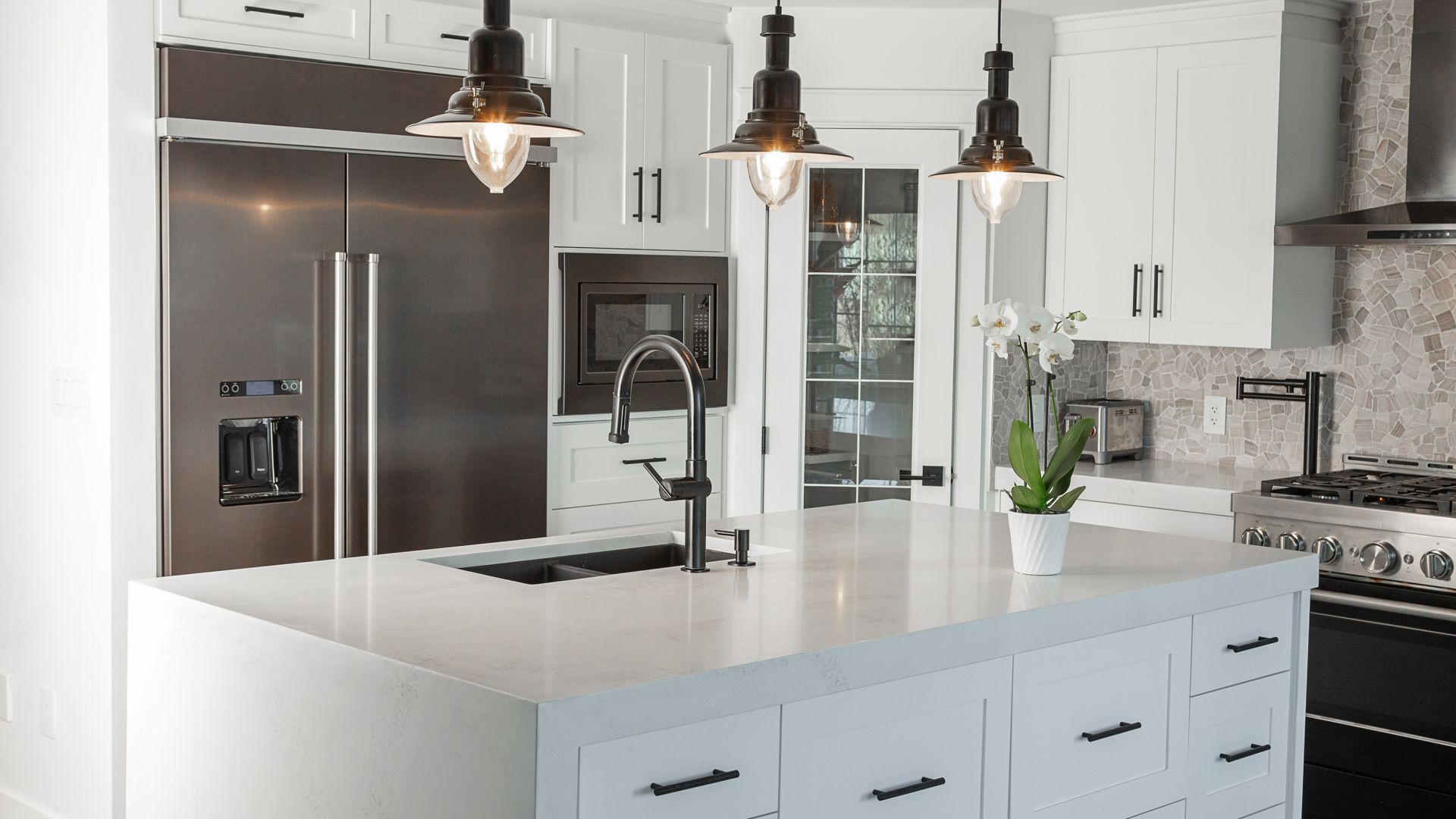Many homeowners wonder why their peaceful abode sometimes mimics a symphony of odd noises. Understanding the reasons behind your noisy pipes can help you identify potential plumbing issues—and preserve your sanity.
In this blog post, we're diving deeper into the enigma of noisy pipes, offering insights into the common causes.
5 Reasons Pipes Make Noise
The sounds reverberating through your pipes are not just random; they're symptomatic of underlying issues that differ in severity. Here's a look at the top five reasons your pipes might be serenading you:
1. High Water Pressure
When the water pressure in your home is too high, it can cause pipes to vibrate. Normally, water pressure in your home's plumbing should be around 40 to 60 pounds per square inch (psi.) However, if the pressure exceeds this range, it can result in noisy pipes.
An experienced plumber can help you by installing a pressure reducer valve on the water main. By regulating the water flow, this device can prevent potential damage to your pipes and fixtures, bringing a more efficient and reliable water supply to your home.
2. Material
As hot water flows through copper pipes, it transfers heat, causing the pipes to expand. Due to copper's malleability and ductility, this expansion can lead to noisy rubbing against your home's hidden structural features when the pipes contract in tight spaces.
To mitigate this issue, consider enlisting the assistance of a professional plumber who can pad your pipes with insulation.
3. Water Hammering
Water hammering occurs when water flow suddenly stops, such as when a faucet is abruptly turned off, causing a sudden halt to the high-speed flow of water. This abrupt stop generates a distinct knocking or hammering sound. This effect is even more pronounced when there is high water pressure.
For a sound solution, get in touch with an experienced plumber. They have multiple solutions at their disposal to address this issue, with the most prevalent being the installation of a water hammer arrestor.
4. Clogs
Blockages due to roots, grease, or food debris build-up can also be the culprit of noise in your pipes. Whistling, gurgling, and bubbling sounds are typical indicators that clogs are influencing water flow and creating gurgling or sucking noises.
To remove the clog, consider utilizing a drain cleaner. Remember to wear gloves and goggles for safety. However, it is advisable to limit the use of chemical drain cleaners as they may cause damage to pipes. If the clogs and noise persist, do not hesitate to seek the assistance of a professional plumber.
5. Loose Components
If your piping system has elements that aren't secured properly, they might make a racket. Loose washers or hardware can cause rattling or vibrating noises, making it seem as if something is knocking around inside your walls. Sometimes, this can be attributed to excessive wear and tear.
Sometimes, you can resolve this issue by shutting off your water main, opening up the faucet, cleaning it, and rebuilding it. However, if you are uncertain about any loose parts or if you have any doubts, it is advisable to contact a plumber.
Concerned About Noisy Pipes? Call Our Team
While a noisy pipe here and there may not spell immediate disaster, it's essential not to ignore these noises if they become concerning or worsen. Regularly experiencing such sounds may indicate pressing issues within your plumbing that require expert attention.
If you're in a home with a cacophony of pipe noises, don't hesitate to give our team at Smith's Plumbing Services a call. We can be over in no time to examine your plumbing and get to work on any needed repairs.
Call us today at (901) 290-1110 or send us a message online
